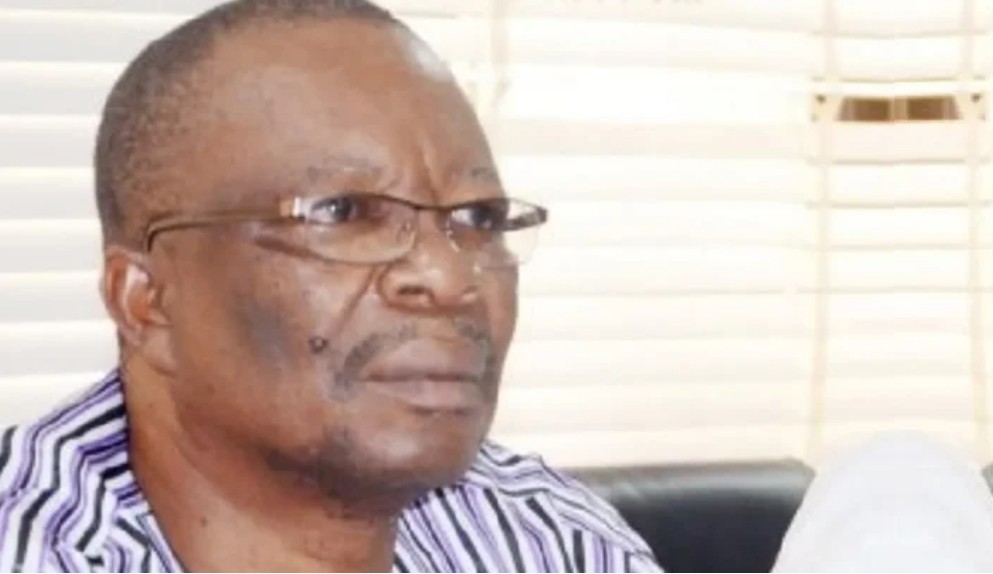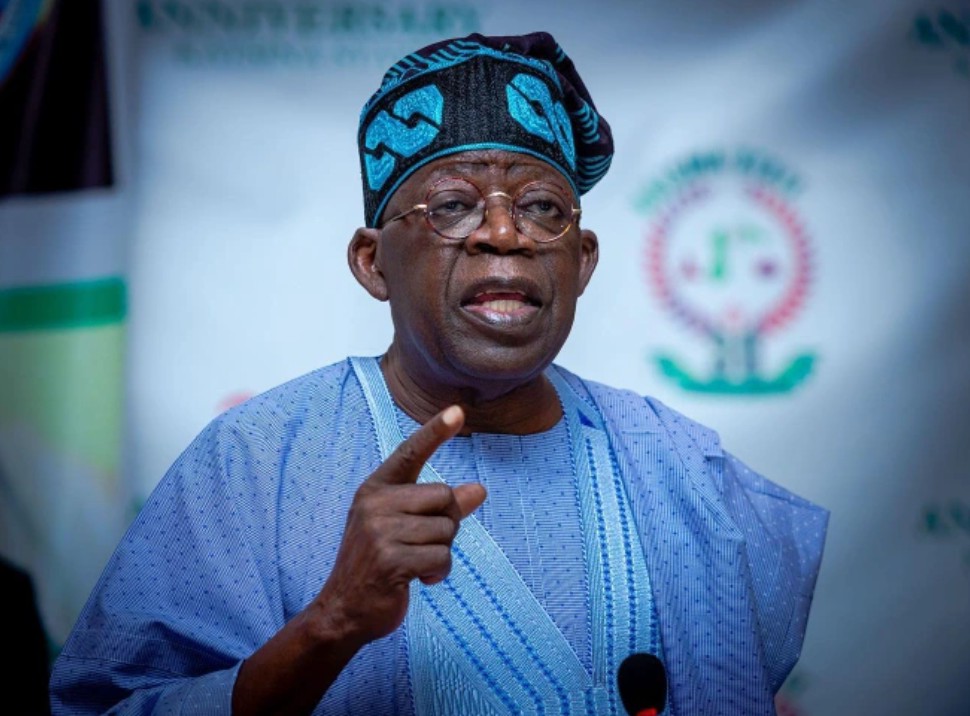Home > Entertainment > From stage to throne, the amazing story ...
From stage to throne, the amazing story of Laz Ekwueme
By AnchorNews | 08 Apr, 2024 12:30:00pm | 50

Call him ‘jack of all trades’, and you may not be wrong. Igwe Lazarus Edward Nnanyelu Ekwueme, popularly known as Professor Laz Ekwueme, is indeed many things rolled into one.
For some people, he’s a composer of great repute, singer, scholar and author of bestselling books, while for many others, the thespian is simply a living impresario of the arts.
But whatever way you want to look at Igwe Laz Ekwueme, the octogenarian actor and paramount ruler of Oko Kingdom in Orumba North Local Government Area of Anambra State, remains not only the doyen of choral music in Nigeria, but also, one of the country’s most influential figures alive.
Following his coronation as Igwe Ekwueme, the fourth of Oko Kingdom, in 2008, Laz instantly became the symbolic icing on the cake to many lovers of art in Nigeria. As a traditional ruler, Laz’s passion for the art has remained undying with the passage of time, even as the demands of the throne have not restricted him from getting involved in the arts. One recalls that Igwe Laz insisted before ascending the throne of his forefathers that while on the throne, he shouldn’t be separated from the arts.
That was why the professor emeritus was still finding time to grace the stage and screen during his early days on the throne. Igwe Laz’s love for the arts is dated back to the 1960s, while he was in Britain. He was reportedly an active actor in African films produced by the African Service of the British Broadcasting Corporation. And since then, the impresario of the art has never looked back.
Laz left Britain in 1964, and returned to Nigeria, where he took up a faculty position at the University of Nigeria, Nsukka. As a lecturer of Music composition, Theory, History, Singing and Conducting, Igwe Laz Ekwueme was an important member in the pioneering Nigerian music department at Nsukka, which was the first to award music degrees in the country.
Being the foremost Professor of Music in Nigeria, Laz gave considerable attention to choral music, organizing the University of Nigeria Choral Society, a group of foreign and local students who performed regularly on campus. Following his quest for advancement, Laz returned to school in 1966 and bagged a post graduate degree in Music Theory from Yale University. He also taught at the college and a few other colleges in America. While at Yale, the Oko monarch founded the New Haven International Chorus.
In 1974, he returned to Nigeria, where Jacob Ade Ajayi gave him a position at the newly created department of music, at the University of Lagos, and also as a research fellow at the Center for Cultural Studies. While in Lagos, he formed the Laz Ekwueme National Chorale, a highly respected African choral group. With ehis worth of experience in musical experimentation, He was one of the few early Nigerian composers to produce a successful musical syncretism of African choral works using western forms and techniques with the result generating wide appeal among Africans, and little difficulties or distortion in conveying meaning of the words being sung.
For his effort in music composition and conducting, Igwe Laz was appointed the coordinator of the Nigerian National Choir at the Black Arts Festival, Festac 77. On several occasions in the past, Igwe Laz and his choral group were regular performers at the MUSON Centre, in Onikan, Lagos. Until his retirement from the University of Lagos, after almost four decades in academia, nurturing budding talents, Igwe Laz never distanced himself from the arts. He also authored about 13 books on different branches of the arts as well as monographs, numerous scholarly works and journal articles on music, especially the role of music in the lives of Africans and Africans in diaspora. In addition to this, he has equally contributed chapters in several other academic books. He’s said to have projected African music so well that people enjoy his songs and conducting.
As a music scholar, Igwe Laz aws known to have explored distinctive indigenous African rhythm and melody in some songs of the New world and American music, a theme that was one of the vocal points of his research efforts. Being a researcher, the icon of the arts spent time studying musical patterns of Africans, Caribbeans and African Americans. He appreciated the similarities in ways in which African Americans in Louisiana sing songs and Africans in Dahomey.
Also, the importance and employment of music in cardinal events in the lives of Africans and those in diaspora is a theme prevalent in many of Laz’s research efforts. Away from academia and his career in music,Igwe Laz was also an actor par excellence who sailed through diverse roles with equal elan and sophistication. He began his acting career back in the 90s when he joined the Nigerian movie industry better known as Nollywood. He became popular after starring in the hit movie, “Igodo.’ Apart from “Igodo”, Igwe Laz also had featured in many other movies, including “Senator”, “Love Story”, “Formidable Force”, “Lords of the Game 1 and 11” among others. While he was active on screen, Igwe Laz never restricted himself to the roles of a money bag or the affluent. He also played the role of a subject, thereby feeling the pulse of the people. Despite being on the throne,he never showed the difference while on movie sets. Better still, he treats everybody equally, and never carried himself so high as a traditional ruler.
Tracing the origin of his passion for the arts, in an interview he granted to celebrate his 72nd birthday in 2012, the legendary musicologist described himself as a man of multiple interests. He also acknowledged his diversity,noting that “ I have more or less done everything to the point that it was so difficult to choose a career.”
“The career I eventually found myself was at happenstance. I had an interest in very many things right from my childhood. I had a flair for singing, music, mathematics, English, and tradition. I had a diverse interest. At school, Government College, Umuahia, I had interest in the arts as well as in the sciences.” Speaking further, Laz said “I was good at drama at Umuahia. I could also play games a lot. Everybody had to play every game. Some of us even went into boxing. I almost went professional in boxing. Later, I changed from boxing to Karate. I am a black belter in Karate, but not at 73(back then). It would be foolhardy for me to break tables with my fists now. But this is to show you the diversity of my interests. It was difficult for me to choose a career and having no money made it more difficult.”
Laz remains that restless spirit who redefined the indigenous folk music with his immitable craft. He’s also one of the greatest African creatives that strived to put the continent on the global map of choral music. He’s equally considered as one of the pillars of the Nigerian movie industry. Indeed, the story of African music and the arts cannot be complete today, without giving credit to Igwe Laz Ekwueme as one of the pioneers of the vibrant sector. An alumnus of the Royal School of Music,RSM, London, Igwe Laz retired from University of Lagos as Head of Department,HoD. He was an awardee of Nigerian National Order of Merit,NNOM, and Member of the Order of the Niger,(MON), respectively.
Indeed, despite his accomplishments and intimidating credentials , Igwe Laz Ekwueme hasn’t shown signs of resting on his oars even as he clocked 88 on January 28, 2024. Though his strength may be failing him presently, the bearded performer’s spirit is always with the arts, thus allying with the saying that “an artist never retires.” Perhaps, when the annals of contemporary African music and movies are being compiled, Professor Laz Ekwueme will definitely occupy a prominent space in the compilation as one of the pillars of the creative industry.
Vanguard

Leave a Reply
Your email address will not be published. Required fields are marked *
Category
 Crime & Security
Crime & Security Entertainment
Entertainment Opinion
Opinion Culture & Tourism
Culture & Tourism Education
Education  Politics
Politics Business & Economy
Business & Economy.jpeg) Interviews
Interviews Religion
Religion  Technology
Technology News
News Health
Health Sports
Sports